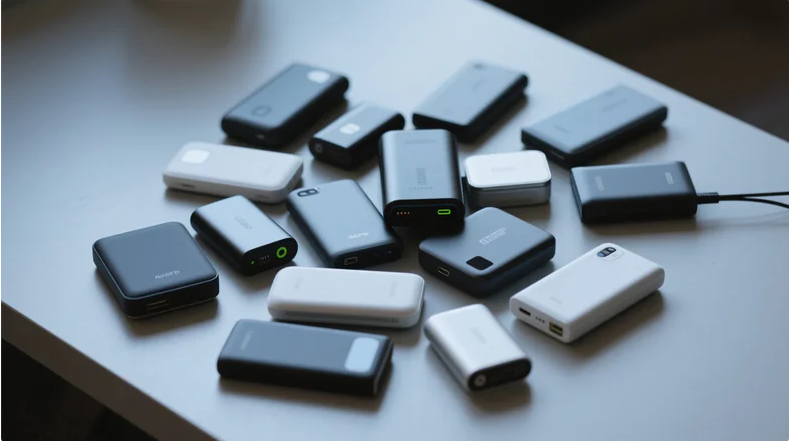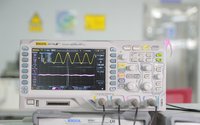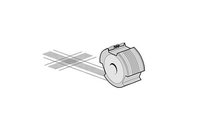From "Price War" to "Safety Redundancy": The Crisis of Power Banks Reconstructs the Competitive Logic of Electronic Components
Date:2025-07-04 15:51:21 Views:2280
Recently, a power bank recall storm caused by battery cell defects has swept through the consumer electronics industry. The two leading brands, Romans and Anke Innovation, have successively announced the recall of over 2 million products, and the 3C certification of brands such as Green Union and Beisi has been suspended simultaneously. According to data from the State Administration for Market Regulation, more than 70 3C certification certificates for battery cells from the involved supplier Ampris have been completely suspended, triggering a domino effect in the supply chain.

Image source: Tiger Sniff Net
The trigger for the incident was the notice issued by multiple universities to ban the use of Roma power banks, pointing out the risk of explosion during charging. Subsequently, the company conducted self inspection and regulatory intervention to uncover deeper hidden dangers in the industry chain. After investigation, it was found that the core of the problem lies with the battery cell supplier Ampris (Wuxi) Co., Ltd. The company was jointly established by American Amperex and Wuxi Industrial Development Group. It is a leading enterprise in the domestic consumer soft pack battery industry, supplying battery cells to mainstream brands such as Roche, Anke, Xiaomi, Green Union, and Beisi. In this incident, Amperex outsourced some battery cell production to a Jiangxi contract factory, which illegally replaced battery separator materials, resulting in insulation failure and potential risks. In addition, Ampris mixed problematic battery cells into the whole machine certification batch to avoid testing, which resulted in downstream brands being unable to detect hidden dangers through routine testing.
This crisis has exposed the long-standing structural contradictions in the industry. The power bank market is highly competitive, with price wars intensifying. Products priced below 100 yuan flood the market, and battery cells account for over 50% of the total cost of the device, becoming the primary target for manufacturers to reduce costs. Under the pressure of extreme low prices, some suppliers reduce costs by cutting corners or using recycled old battery cells. Although Apris is a top supplier, it also adopts aggressive pricing strategies to win orders. After profit margins are squeezed, the loss of control in outsourcing ultimately leads to systemic risks.
This incident has had a profound impact on the electronic components industry. From the perspective of suppliers, Ampris, as the largest supplier of soft pack batteries in the domestic power bank field, supplies to many well-known brands. However, the suspension or revocation of its 3C certification has put related brands in a difficult situation, highlighting the serious problems that electronic component suppliers face in terms of raw material changes and quality control. This also suggests that electronic component suppliers must establish stricter mechanisms for reporting changes in raw materials and quality control to ensure that the components they provide meet the highest safety standards, otherwise they will face the risk of losing market share or even being eliminated.
In terms of quality control, this incident highlights the shortcomings of existing standards and testing and certification systems in the power bank industry, prompting relevant institutions and enterprises to pay more attention to the refinement and improvement of safety standards. In the future, industry standards may cover more stringent requirements for battery cell materials, performance, and safety testing. In terms of market structure, large-scale recalls have an impact on the market share and brand image of the involved brands, which may accelerate industry reshuffling. Brands that focus on product quality and safety are expected to gain more market opportunities. At the same time, consumers' attention to the safety of power bank products has significantly increased. In the future, when purchasing power banks, they will be more cautious and tend to choose well-known brands and products with reliable quality assurance. This will drive the entire industry to pay more attention to product quality and safety performance, and promote the transformation of the industry from "price competition" to "quality competition".
The essence of this storm is actually a collective reflection of the industry on the logic of "cost first". When Anke announced the investment of 200 million yuan to build a battery cell testing laboratory, and Xiaomi changed the supplier audit cycle from quarterly to monthly, the value chain of the electronics manufacturing industry is being reshaped. The regulatory authorities plan to introduce new regulations by the end of the year, requiring re certification of battery cell materials and establishing a supplier blacklist sharing mechanism. The "lightning protection list" spontaneously created by consumers on social media platforms, as well as the strict inspection of power banks by airport security checks, all indicate that the market's demand for safety has become an irreversible trend. For the electronic components industry, the future development of the industry requires improvement and enhancement in various aspects such as product quality, technological innovation, and market standards to cope with new challenges and opportunities.




 Weixin Service
Weixin Service

 DouYin
DouYin
 KuaiShou
KuaiShou





















